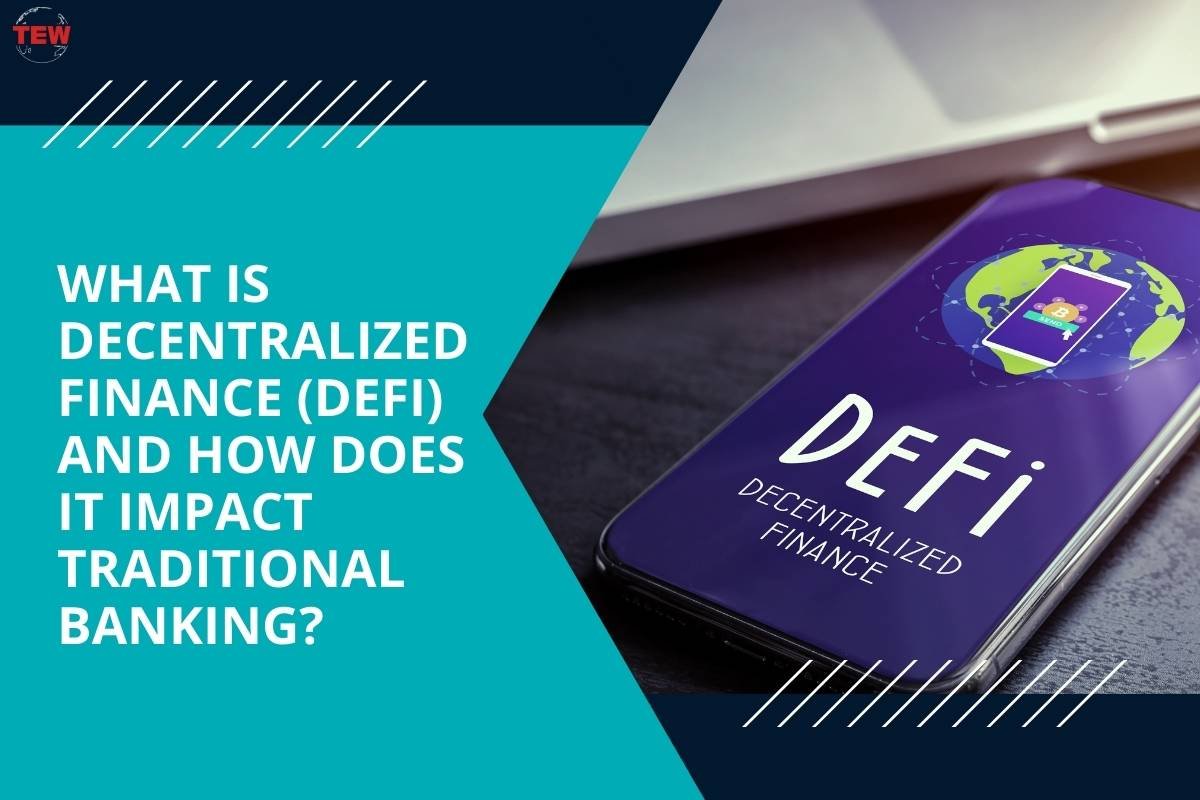Have you heard about decentralized finance (DeFi) and wondered how it might impact traditional banking? DeFi is revolutionizing the financial landscape, and its influence on traditional banks is profound. But what exactly is DeFi, and how will it change the way banks operate? Here, we’ll explore the world of decentralized finance and its significant impact on traditional banking.
Greater Accessibility to Financial Services
One of the most notable ways Decentralized Finance DeFi will impact traditional banking is by making financial services more accessible to everyone. Traditional banks have strict regulations for opening accounts, applying for loans, or investing in financial products. This can leave many people, especially those in developing countries or with low credit scores, without access to essential financial services.
DeFi platforms operate on blockchain technology, allowing anyone with an internet connection to connect to many different financial services without needing a traditional bank account. This includes borrowing, lending, trading, and investing in cryptocurrencies and other digital assets. By removing the barriers to entry, DeFi democratizes finance, giving more people the opportunity to participate in the global economy.
Transforming Business Payment Solutions

DeFi is also set to transform business payment solutions, which could significantly impact traditional banking. Businesses often rely on banks for payment processing, which can be slow, expensive, and fraught with intermediaries. DeFi offers a faster, cheaper, and more transparent alternative through the use of smart contracts.
Smart contracts are unique contracts that have the terms of the agreement inside of the code instead of using current techniques. When certain conditions are met, they automatically move to the next step. This eliminates the need for intermediaries and reduces the time and cost associated with traditional payment processing. This can streamline business operations, enhance efficiency, and reduce the likelihood of errors or fraud.
Imagine a world where businesses can transfer funds instantly across borders without the need for multiple banks and third-party processors. DeFi makes this possible, offering a seamless and cost-effective solution that traditional banking systems struggle to match. This shift could force traditional banks to rethink their business payment solutions and adapt to a more decentralized model.
Enhanced Transparency and Security
Another significant impact of Decentralized Finance DeFi on traditional banking is the enhanced transparency and security it offers. Traditional banks operate on centralized systems, which can be vulnerable to hacks, fraud, and data breaches. DeFi leverages blockchain technology to create a decentralized and transparent system. Additionally, every transaction is recorded on a public ledger.
This transparency allows users to verify transactions and holds all parties involved to the agreed-upon terms. It also reduces the risk of fraud and corruption, as all transactions are immutable and cannot be altered once recorded. For consumers, this means greater trust in the financial system and increased confidence in their transactions.
Plus, DeFi platforms often use advanced cryptographic techniques to secure user data and assets, making them less susceptible to cyberattacks compared to traditional banks. This heightened security can protect users’ funds and personal information, addressing one of the main concerns people have with conventional banking systems.
Disrupting Traditional Lending and Borrowing

The traditional lending and borrowing process involves a lengthy application process, credit checks, and approval from a centralized authority, typically a bank. This process can be cumbersome and often excludes individuals without a strong credit history. DeFi is set to disrupt this model by offering decentralized lending and borrowing options that are more inclusive and efficient.
In the DeFi ecosystem, borrowers can secure loans using their digital assets as collateral, bypassing the need for lengthy approval processes including credit checks. This peer-to-peer lending model allows anyone to become a lender or borrower, providing liquidity and access to credit for a broader range of people. Interest rates and even the loan terms are determined by smart contracts, ensuring transparency and fairness for both parties.
This shift towards decentralized lending can significantly impact traditional banks, which may need to innovate and offer more flexible lending solutions to compete with DeFi platforms. By leveraging blockchain technology, DeFi can offer lower interest rates, faster approval times, and a more streamlined process, making it an attractive alternative to conventional banking.
Investment Opportunities and Wealth Management

Decentralized Finance (DeFi) also opens up a world of new investment opportunities. Traditional banks and financial institutions often have high entry barriers for investment products, such as minimum investment amounts and accreditation requirements. DeFi removes these barriers, allowing anyone to invest in a wide range of assets.
One of the key features of DeFi is yield farming, where investors can earn returns by providing liquidity to DeFi protocols. This process involves staking digital assets in liquidity pools and earning interest or rewards in return. Yield farming offers potentially higher returns than traditional savings accounts or investment products offered by banks, attracting a growing number of investors.




